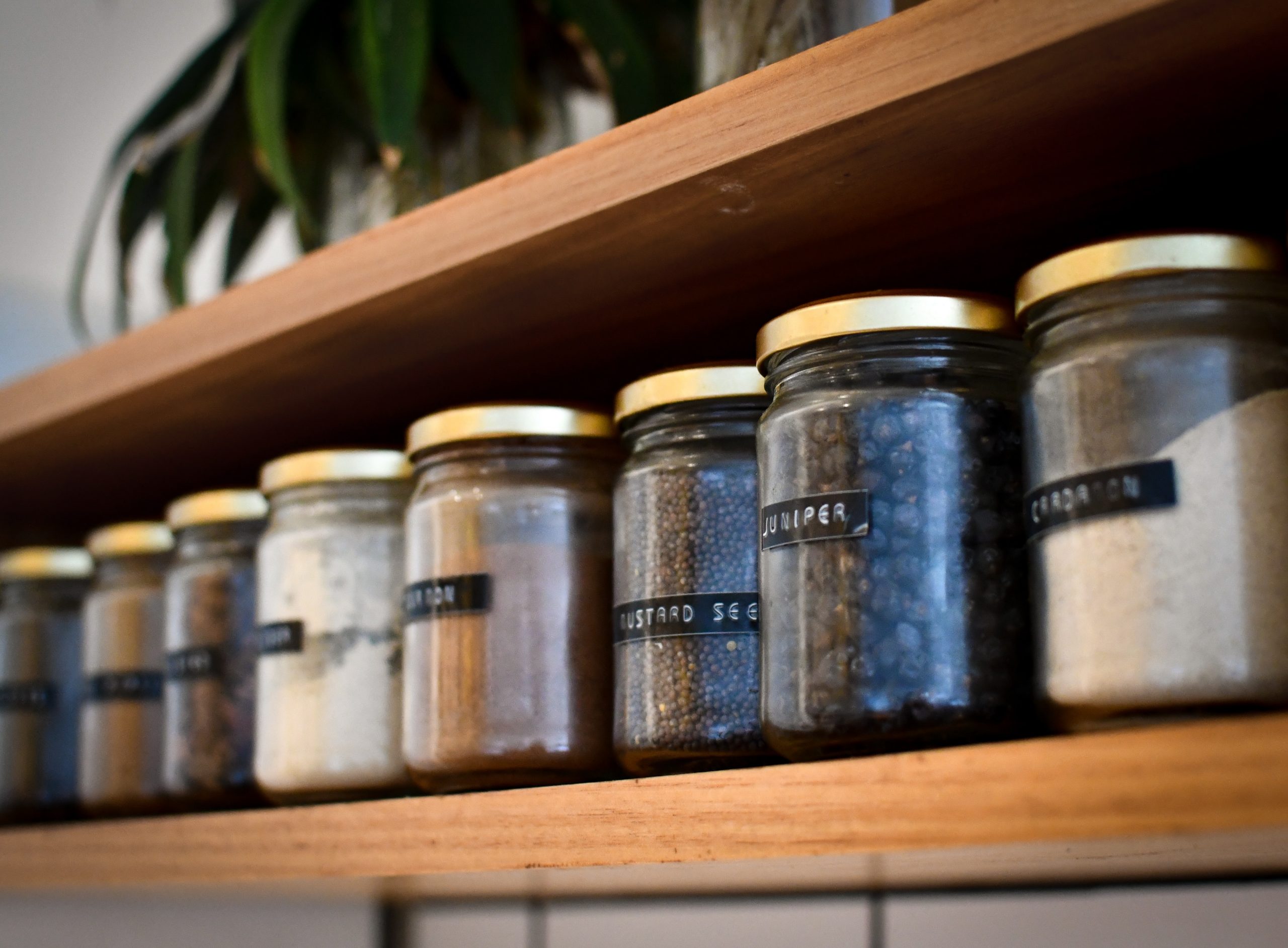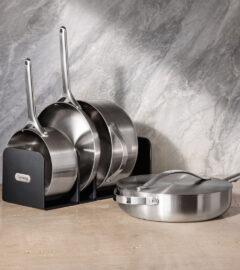When it comes to the kitchen, it’s important to keep all the essentials in stock. Whether you’re cooking up an elaborate dinner or whipping up a quick meal, a stocked pantry means you have all the right ingredients on hand. It also eliminates the need for a time-consuming grocery run! If you’re wondering which ingredients should always be present in your pantry, then you clicked the right link. Let’s talk about some must-have pantry staples that will make cooking – and your life – so much easier!
1. Salt
This ingredient should be a no-brainer, right? Salt might just be the ever-present ingredient in everyone’s pantries. It’s a well-known flavor enhancer that improves the taste of your dish simply by elevating its flavor profile. In addition to salt being a flavor booster, it’s also known to block bitterness and enhance sweetness in food. Have you ever tried drinking chocolate milk with a pinch of salt? That stuff is glorious.
2. Black Pepper
Again, a no-brainer. Black pepper is one of the most common spices in just about any cuisine. This popular spice is commonly used with salt as both ingredients are famous for improving the flavor and aroma of a plethora of dishes. The best part? Pepper is versatile. It can be used whole, cracked, or ground. Most professional chefs like to use freshly ground pepper to add depth to a finished dish. (Pro tip: Invest in a great pepper mill! There’s a reason why you always see all these chefs grind their peppers as opposed to using pre-ground ones.)
3. Olive Oil
If you can, buy extra virgin olive oil. The main difference between regular and extra virgin olive oil is that extra virgin olive oil is unrefined. This means that it retains its fragrance, color, and flavor profile and does not lose important nutrients and antioxidants in the refining process. Extra virgin olive oil is also an excellent choice for dressings, dips, and sauces.
4. Honey
Honey is a great sugar substitute especially if you want to steer clear from refined sugars. This natural sweetener contains antioxidants and antibacterial properties that protect the body by boosting the immune system. When it comes to cooking, honey can be used to glaze your roasted meat or as a dressing for your salad. Honey is also an easily adaptable ingredient in most baking recipes.
5. Sugar
We all know that sugar plays an important role in anything that goes on in the kitchen. Whether it be cooking, baking, or sweetening our coffee or tea, sugar is a great ingredient to have on hand due to its versatility and long shelf life. Sugars come in many forms such as raw, unrefined, refined, granulated, or powdered. Sugar, like salt, is also a natural preservative that binds water molecules to prevent the growth of bacteria.
6. Chicken Stock or Broth
Both powdered chicken stock and chicken broth add richness to all sorts of delicious dishes. It’s a very useful ingredient to have in your pantry as it amplifies the flavor of soups, stews, and sauces. It’s always a good idea to keep this ingredient in stock in case you want to whip up a quick meal without the painstaking effort of boiling and simmering chicken bones for hours.
7. Beef Stock or Broth
A well-stocked pantry will almost always have beef stock or beef broth. Like chicken broth, beef broth is used as a base for most soups, stews, braises, and sauces. While homemade broth is usually preferred, store-bought can also be a convenient option if you just don’t have the time to make your own.
8. Garlic
When we say that garlic can be used as a flavoring agent for anything, we mean anything. If you love trying different types of food from different parts of the world, then you’ll know that garlic is a common ingredient. Garlic is known for its intense and pungent smell as well as its numerous health benefits. It doesn’t matter if you’re cooking an Asian, European, or North American dish, garlic makes any meal savory and aromatic.
9. Onions
Onions can be ranked among the most ubiquitous ingredients in cooking. Depending on how you cook it, onions can be sweet, spicy, savory, or everything all at once. It can also be caramelized, pickled, fried, and roasted depending on the type of dish you’re making or the taste you are trying to achieve. There are several types of onions but some of the most common are white, yellow, red, green, and shallots.
10. Pasta
It doesn’t even matter which kind you go for. As long as you have some type of pasta stored in your pantry, you’ll be able to make a quick meal without the need for elaborate ingredients. For a quick meal idea, try this: boil some pasta, saute garlic in olive oil, add some leftover vegetables and you’ve got the world’s easiest pasta dish. Also, don’t forget to add salt when the water is coming to a boil. This gives pasta just a little bit of flavor.
11. All-Purpose Flour
Most people know that flour is used in almost every baked treat. But did you know that flour can also be used to thicken gravies, soups, stews, and add more texture to fried dishes? From baking bread to frying chicken, all-purpose flour is a great all-around ingredient that should be a staple in every pantry.
12. Butter
There’s a reason why everybody says “butter makes everything better.” Whether you’re trying to saute veggies or adding a bit of flavor to your otherwise boring toast, butter’s richness alone makes it a great ingredient to have in the pantry. The only downside to butter is that it’s high in saturated fat and should be used in moderation.
13. Canned Foods
Canned food is a great option for busy people that do not have enough time to cook a meal from scratch. More often than not, canned food is frowned upon. Why? Because it is often thought to be less nutritious compared to fresh food. It’s also a known fact that most canned foods contain natural or chemical preservatives in order to add to their shelf life. But is canned food really bad for you? As with all foods, it’s important to read the label. Make sure to choose options that have low sodium and no added sugar. In this way, canned foods can be a nutritious option for you and your family especially when fresh foods aren’t available.
14. Eggs
According to National Agriculture in the Classroom, eggs can bind, thicken, coat, emulsify, and serve as a leavening agent. Thanks to its unique properties, this nutritious ingredient can be used in both cooking and baking. It can even be used to blend sauces and smoothen creamy desserts.
15. Dried Herbs and Spices
Okay, we know this is cheating but hear us out. If you’re just seasoning your stuff with salt and pepper, then you’re missing out on a spectrum of different flavors that you can be enjoying right now! We specifically mentioned “dried” since dried herbs and spices are easier to store and have a longer shelf life as opposed to fresh ones. However, if you have access to fresh herbs and spices then definitely go for it! Some of the essential herbs and spices to have on hand are cumin, oregano, curry, nutmeg, paprika, basil, thyme, rosemary, and bay leaves.




